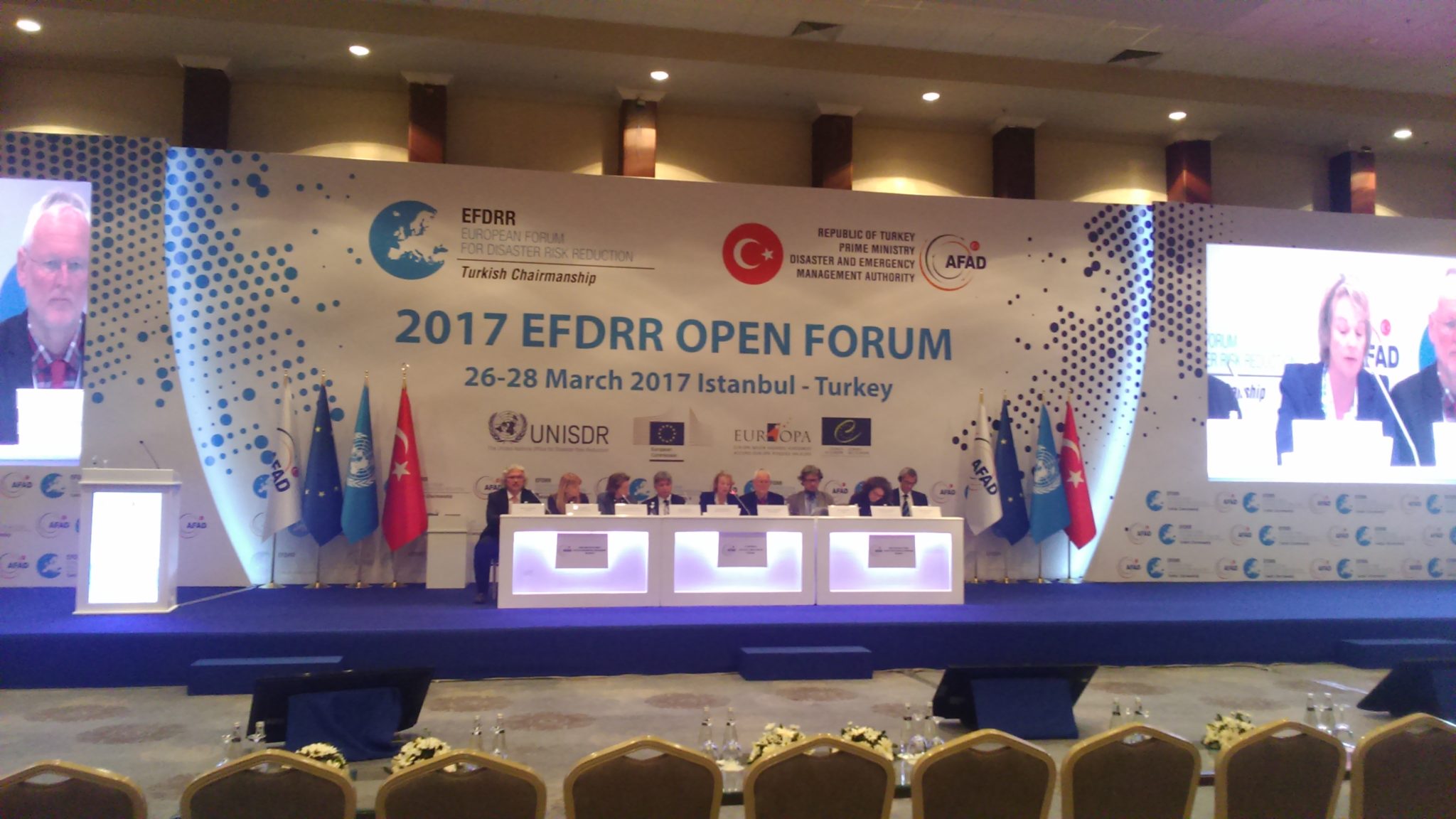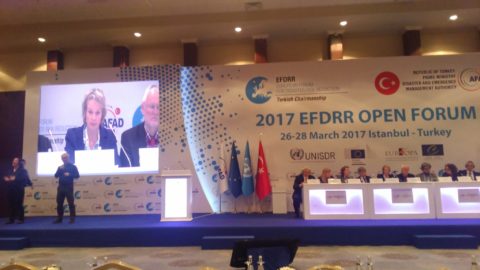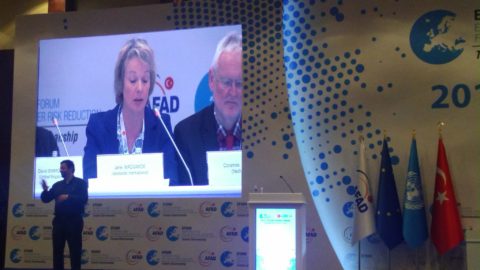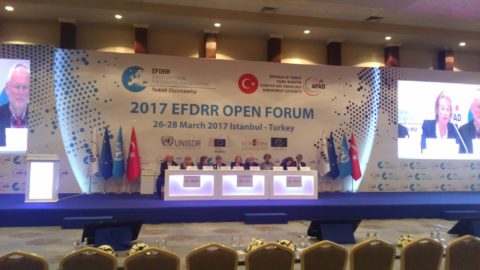
Forum calls for all of society action to reduce disaster risks in Europe
-
Global Europe
At the Open Forum of the European Forum on Disaster Risk Reduction (EFDRR) in Istanbul, Turkey on Monday 27th March 2017, policy makers, scientists and practitioners exchanged important lessons and defined priorities for the implementation of Disaster Risk Reductions measures through land/water use planning and management.
Six Technical Sessions were organised. The one on “Land use planning and management practices at the local level” attracted a wide audience of over 100 participants representing a wide range of stakeholders, including national and local authorities, civil society organisations, companies and research institutions.
Jane Madgwick, CEO of Wetlands International, chaired the session and facilitated the dialogue amongst the audience and speakers: Lorenza Jachia, UNECE; Dragan Zeljko, International Sava River Basin Commission; Giulio Zuccaro, University of Naples; Krista Kampus, Council of the Baltic Sea States.
Discussions sought to answer the following questions:
1. How to connect social, environmental and economic issues and impact assessments to inform cost-effective and sustainable choices for DRR?
2. How to embed hazard mapping and risk assessment tools in urban and rural land use planning and management?
3. How best to achieve stakeholder participation at all relevant scales (local, landscape, transboundary etc)?
4. How to connect expertise and mobilise complementary action by different sectors?
5. How to achieve an optimal balance of investment in hard (grey) and soft (green) infrastructure?
The discussions concluded that inclusive, multi-stakeholder participation in risk assessment, DRR planning and implementation is essential to deliver cost-effective and sustainable solutions. Partnerships between public authorities, private sector and civil society have proven to be effective in mobilizing innovative DRR measures that reconcile different stakeholder demands and foster innovation, for example combining use of hard (grey) and soft (green) infrastructure.
Reporting on the session, Jane Madgwick said “In Europe there is a wealth of knowledge and expertise available to support cost-effective DRR planning and implementation. But to break out of a cycle of disaster – response – repair, there needs to be a positive shift to integrated land use planning and risk-informed development. All sectors of society are needed to make this happen”.
Participants shared evidence of insufficient action in the face of rising disaster risks, in both cities and rural environments. They placed a strong emphasis on the need to overcome this “Implementation Gap” , caused by a lack of political will and insufficient regulatory instruments.
Note section
a) Participants concluded that bottom-up, inclusive approaches to DRR planning and implementation is an adaptive and effective way to define optimal solutions.
The outcome of the technical session is two key recommendations (below) that were highlighted by Jane Madgwick during the closing plenary sessions and that contributed to the outcome document for Cancun.
Therefore, participants from the Technical Session 2 recommend the following:
1) That authorities mainstream risk in all regulatory and investment decisions to avoid losses and maximize economic and societal benefits of adaptation. To achieve this, strategies need to be based on inclusive, bottom-up and evidence-based hazard and risk assessments, that engage all stakeholders, including local communities and the private sector, in full alignment with the EFDRR roadmap. Multi-sector dialogues should be used to improve understanding of risks, different perceptions and capacities, and to facilitate collective action for optimal solutions.
2) That political will for implementing multi-hazard, multi- scale, multi-functional DRR measures is increased through use of communications media, regular review exercises and exchange on cases and lessons learned. Alongside this, governments at all levels must ensure that enabling legislation and regulations are in place and that private sector engagement and accountability is enhanced through collaborative agreements, voluntary standards and PPPs.
b) The EFDRR serves as a forum to stimulate and facilitate the exchange of information and knowledge among participating National Sendai Framework Focal Points, National Platforms and regional/sub regional partners. For the first time, the pilot open forum in Turkey was open to different stakeholders to contribute to the preparation for the 2017 Global Platform on DRR which will be held in Cancun, Mexico. https://europe.wetlands.org/news/efdrr-open-forum/ https://europe.wetlands.org/event/european-forum-disaster-risk-reduction-turkey/
Find out more:
TS2 Recommandations
High Level Dialogue Communiqué
Speakers’ presentations




